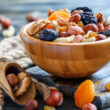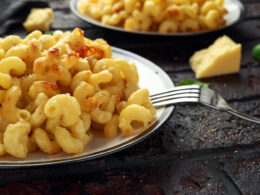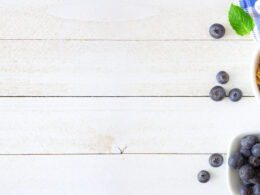Seems like there’s always a new lose-weight-quick scheme every time you turn around — but are these plans safe and effective, or are you better off with traditional diet strategies? Read on as our experts explore four popular diet trends. (And before you try any weight-loss plan, get your doctor’s okay first.)
Fad #1: Juicing
The skinny: Toss a few of your favorite fruits and vegetables into a juicer and sip your low-calorie ‘meals.’
Is it safe? Yes, so long as you use caution, since this diet is severely calorie-restrictive. “A diet that’s focused on fruit and vegetables is nutritionally inadequate,” says Alison Massey, RD, a dietitian at Mercy Medical Center in Baltimore.Be prepared to be hungry, too, if you plan to have nothing but juice three times a day. “Juice alone doesn’t give you the sense of fullness you get when you eat a whole fruit or vegetable, including skin, seeds, peel and fiber,” says Sharon Palmer, RD, a dietitian and author of The Plant-Powered Diet. “This is what offers you more nutrients and gets absorbed more slowly into your bloodstream.”
Bottom line: If you want to try juicing, your best bet is to use it as a substitute for one meal – say, breakfast – and to include a variety of fruits and greens. For the rest of the day, eat a balanced diet that includes protein and complex carbohydrates such as whole grains and beans. If you’re diabetic, keep the fruit content of your juices to a minimum, as those natural sugars can cause a spike in blood glucose levels — and be sure to discuss your juicing plan with a doctor.
Fad #2: Green Coffee Bean Extract
The skinny: Touted as a miracle fat burner, green coffee bean capsules (extract of coffee beans that haven’t been roasted) contain chlorogenic acid, which is believed to slow the release of glucose into the body after a meal. Despite this, there’s also a fair amount of controversy over whether this actually works.
Is it safe? It’s too soon to say. Despite manufacturer claims that green coffee bean extract is a great way to lose weight, not many studies have been done on it to back them up. “There just isn’t enough science in humans to say that it’s effective,” Palmer says.
Bottom line: Skip this until there’s better evidence to support the idea that coffee beans can help you shed pounds.
Fad #3: SENSA
The skinny: Otherwise known as the ‘Sprinkle Diet,’ the concept of this plan is that you merely sprinkle this ‘patented’ blend of maltodextrin, tricalcium phosphate and silicate (available in either a sweet or salty flavor) onto your food. Since this ingredient combo promotes a feeling of fullness, you’ll ideally eat less and lose weight by taking in fewer calories.
Is it safe? While the ingredients in this product have been deemed safe by the FDA and the concept of this diet is interesting in theory, you may find that sprinkling is still more trouble than it’s worth. Common side effects that accompany the use of this product include stomachaches, headaches, nausea, constipation and heartburn. In addition, it’s debatable if this product even works. “There’s not much clinical research (that isn’t done by the company) supporting SENSA’s effectiveness regarding weight loss,” Massey says.
Bottom line: Insufficient research plus possible unpleasant side effects equal a verdict of: give this a pass.
Fad #4: The Paleo Diet
The skinny: This popular new eating plan is based on the concept that our cave ancestors stayed healthy and slim by eating only what they could hunt and harvest. Meat, fish, eggs and fresh produce are staples of this diet; cereal, bread, legumes, dairy, salt and potatoes are out.
Is it safe? Not necessarily, especially if you have cardiac issues. “A modern-day Paleo [short for Paleolithic] diet, which puts an emphasis on meat, isn’t an optimal diet for heart disease and cancer prevention,” Palmer says.
Bottom line: Giving up even healthy starches and dairy products for good seems pretty unrealistic, which is why our dietitians give this one a thumbs-down. “I don’t think it’s very sustainable,” Palmer says. “It’s very difficult to eat this way for the long term.” A better alternative: Cut down on sweets and substitute white bread and pasta for 100% whole grain versions, and you’ll see success without feeling deprived.






